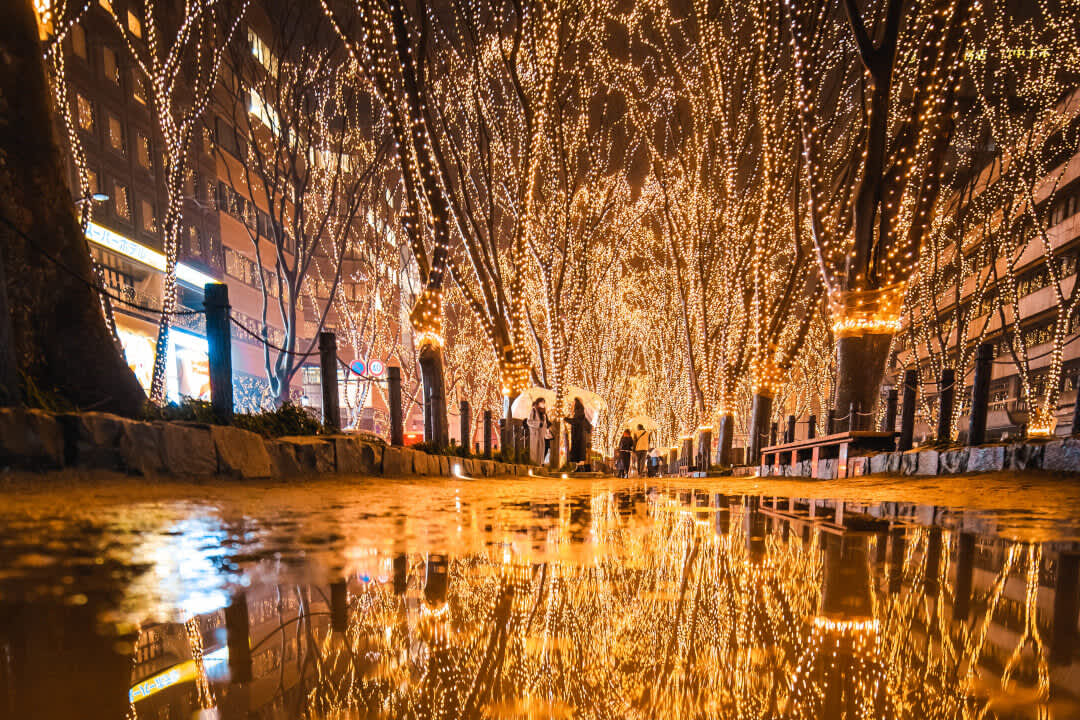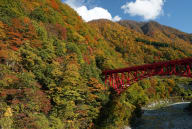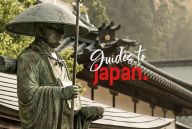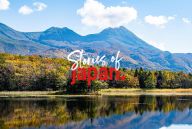
The first month of winter in Japan brings with it seasonal highlights such as grand illuminations, the start of the ski season and often the first snowfall of the season. We've highlighted a few festivals and events below that may be of interest for future trips to Japan. They are selected from a list compiled by JNTO's Tourist Information Center, and the full list is available at the end of the article.
It’s worth noting that the New Year’s holiday period, around 28 December to January 5 depending on the year, is a very busy time for domestic travel. New Year’s (oshogatsu) is an important holiday for the Japanese, and many people return to their hometowns during this period. Some businesses will close for a few days, so make sure to plan in advance if travelling around this time.
Visitors may also be surprised to find New Year’s Eve is not typically celebrated with fireworks. Instead, people spend time with family and will often visit shrines and temples around midnight to welcome the new year.
NOTE: Some websites only have information in Japanese so you may need to use an online translation service such as Google Translate or DeepL . Alternatively, the Chrome browser allows you to translate many webpages from Japanese into English.
This information is correct at time of publishing. Dates, times and functions are subject to change without notice and can vary slightly each year. In particular, the schedule of outdoor events may change due to the weather. Be sure to check the latest information in advance.
Chichibu Yomatsuri (Night Festival)
Where: Chichibu, Saitama Prefecture
When: Cancelled in 2021 (Usually held each year on 2-3 December)
Summary: This grand night-time celebration is considered one of the three grandest float festivals in Japan and is a UNESCO Intangible Cultural Heritage as well as a National Important Intangible Folk Cultural Property. Marvel at lavishly decorated giant floats lit up with lanterns, see fireworks and enjoy festival food and drinks.
More information:
・JNTO | Chichibu Night Festival
・Chichibu Matsuri | Official site
Kobe Luminarie
Where: Kobe City, Hyogo Prefecture
When: Cancelled in 2021 (Usually held each year from early to mid-December)
Summary: A spectacular light-up event that was first held in 1995 in memory of the victims of the Great Hanshin-Awaji Earthquake.
More information: JNTO | Kobe Luminarie
Ikenoue Misogi Matsuri (Hadaka Matsuri)
Where: Katsuragake Shrine, Gifu Prefecture
When: 11 December 2021
Summary: A festival where boys and men clad in loincloths enter the Nagara River to purify themselves and offer prayers for success.
More information: Gifu Convention and Visitors Bureau | Ikenoue Purification Ceremony
Ako Gishi-sai
Where: Ako City, Hyogo Prefecture
When: Cancelled in 2021 (Usually held each year on 14 December)
Summary: A festival featuring a parade of ‘47 Ronin’ that is held to commemorate the heroic deeds of the 47 loyal ronin (masterless samurai) of Ako.
More information: Travel Hyogo | Ako Gishi Festival
Gishi-sai
Where: Sengakuji, Tokyo Prefecture
When: 14 December each year (awaiting update on whether the event is being held in 2021)
Summary: Sengakuji is the temple where the 47 Ronin (masterless samurai) from Ako were laid to rest, and this festival is held to honour their story of loyalty and sacrifice. The highlight is the parade of 47 ‘samurai’ who walk together in a solemn procession in remembrance of the fallen warriors.
More information:
・JNTO | Ako Gishisai Festival
・Sengakuji | Official site
Setagaya Boro Ichi
Where: Setagaya, Tokyo Prefecture
When: Cancelled in 2021 (Originally scheduled for 15-16 December 2021 and 15-16 January 2022)
Summary: A flea market that has been held since 1578 and is recognised as one of Tokyo’s Intangible Folk Cultural Properties. Over 700 stalls sell a variety of goods including food, antiques and second-hand clothing.
More information: Go Tokyo | Setagaya Boro-ichi (Flea Market)
Hagoita Ichi
Where: Sensoji Temple, Tokyo Prefecture
When: 17- 19 December 2021
Summary: An annual market selling hagoita, decorative wooden paddles decorated with figures such as kabuki actors, popular celebrities and sumo wrestlers. Hagoita also refers to a wooden bat used to play hanetsuki, a traditional game similar to badminton, but the ones sold at the fair are purely decorative and are good luck charms for the new year.
More information: JNTO | Hagoita Ichi Fair
Shimai Kobo
Where: Toji Temple, Kyoto Prefecture
When: 21 December 2021
Summary: The final market of the year at the temple featuring stalls selling items such as second-hand kimono, pottery, food and New Year's decorations. The market is held on the 21st of each month and is usually called the Mieku (Kobo-ichi market).
More information: To-ji Temple | Official site
Shimai Tenjin
Where: Kitano Tenmangu Shrine, Kyoto Prefecture
When: 25 December 2021
Summary: The final market of the year at the shrine with stalls selling food, second-hand kimono and much more. The monthly market is usually called Tenjin-san’s Festival and is held on the 25th of each month.
More information: Kitano Tenmangu | Official site
Zao Juhyo Festival
Where: Zao Onsen Ski Resort, Yamagata Prefecture
When: 25 December 2021 to 28 February 2022
Summary: An annual featuring illuminated ‘Snow Monsters’, frost-covered trees known as juhyo in Japanese.
More information: JNTO | Zao Juhyo Festival
Chinka-sai
Where: Itsukushima Shrine, Hiroshima Prefecture
When: 31 December 2021
Summary: A fire festival where a large torch is ignited with a sacred fire from the shrine and carried down to Mikasahama Beach. People light up their torches with the sacred flame, taking it home afterwards to offer to the family altar as a talisman to ward off fire-related disasters in the year ahead.
More information: Miyajima Tourist Association | Chinka-sai
Okera-mairi
Where: Yasaka-jinja Shrine, Kyoto Prefecture
When: 31 December 2021
Summary: A traditional fire ritual held each year on New Year’s Eve where a sacred fire is lit using medicinal herbs to sweep away the negative energies of the previous year. Visitors can buy a special bamboo cord and take the fire home to display in the kitchen to remove bad luck and protect against fire-related disasters in the year ahead.
More information: JNTO | Okerasai Festival



















































